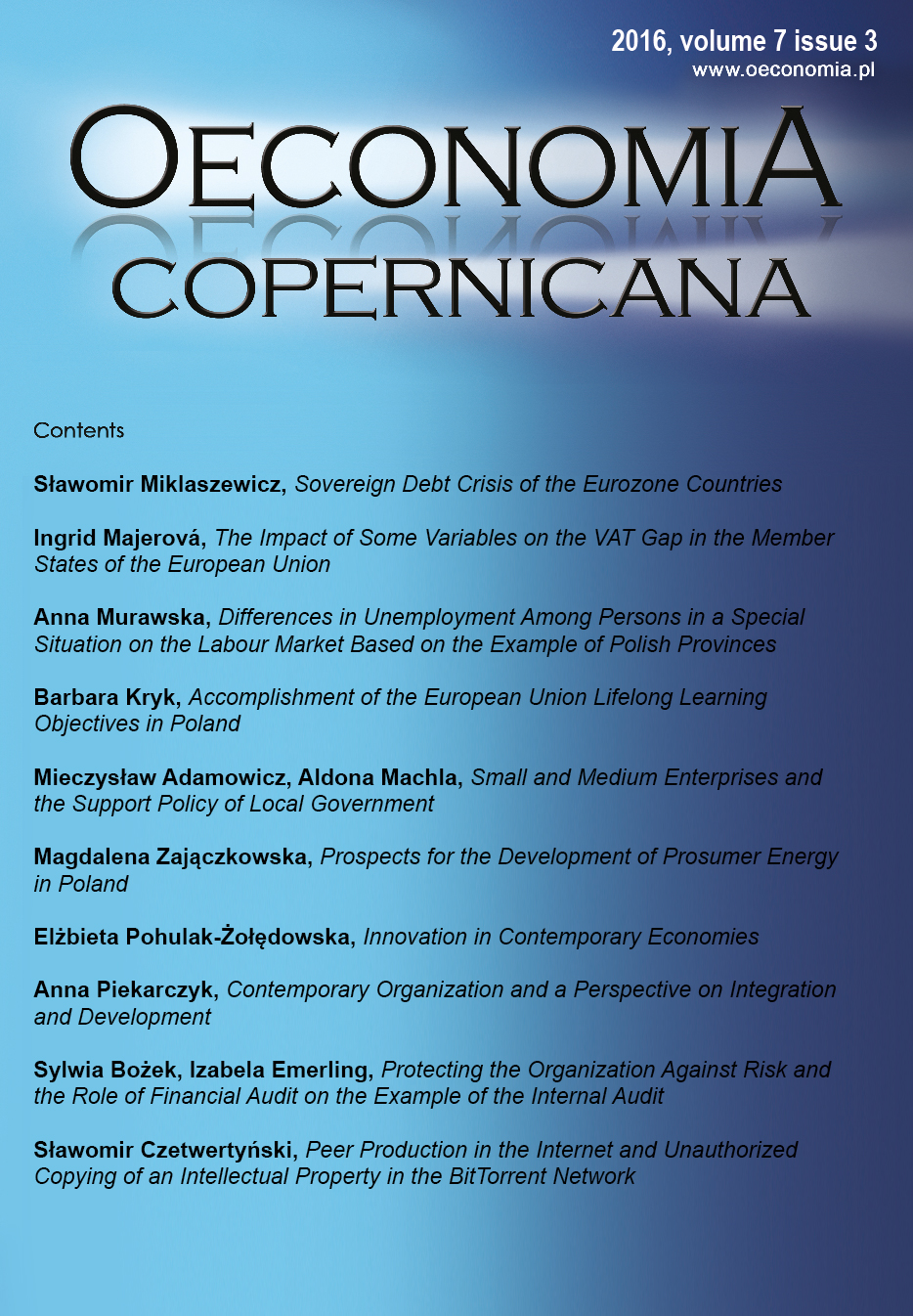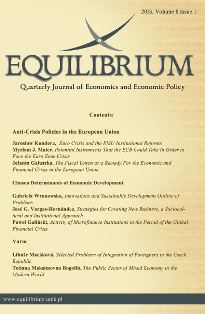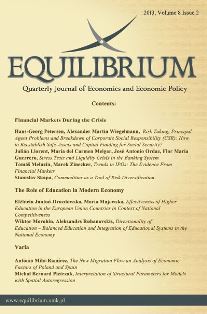
SOVEREIGN DEBT CRISIS OF THE EUROZONE COUNTRIES
SOVEREIGN DEBT CRISIS OF THE EUROZONE COUNTRIES
Keywords: sovereign debt; crisis of the euro area; EMU monetary policy; European semester; fiscal pact; European stability mechanism
The aim of the publication is to examine the fiscal position of the euro area countries and fiscal policy architecture in Europe after the outbreak of the financial and economic crisis started in 2008. The first part of the publication consists of the analyses of the budgetary situation of euro area countries and complications with the increasing costs of servicing the public debt in the European market affected by the financial liquidity crisis. In the second section the most important changes in the framework of budgetary policies coordination process in the euro zone are presented. The final section describes the role and activities of the European Central Bank in minimising the negative consequences of the debt crisis in the euro zone.
More...

